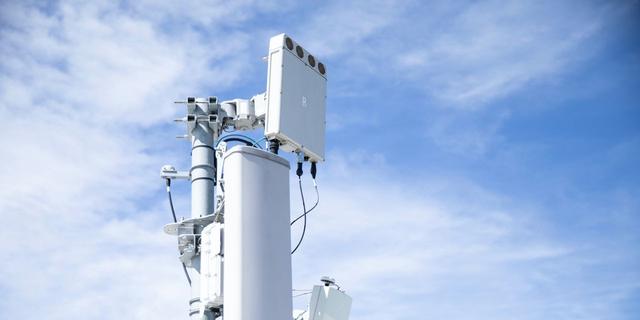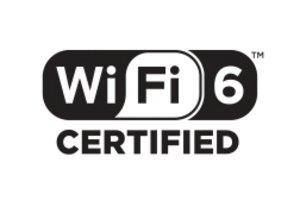Everything from a student's term paper to a company's HR information is in the cloud these days. Companies like Amazon.com run the cloud, a huge collection of servers that store and process data together.
Mobile communication networks are also increasingly relying on the cloud.
This is especially true for the wireless networks being built by new entrants in the mobile communications business, such as US satellite giant Dish Network and Japan's Rakuten Group. This is because it needs to have a cost advantage over existing major competitors.
When people download videos on smart devices, message friends, or make phone calls as usual, they don't even think about the machines processing the data behind them. But installing and managing customized network equipment made by the likes of Finland's Nokia, Sweden's Ericsson and China's Huawei is costly. That's why the bill for an unlimited cell phone data plan can sometimes exceed $70.
By contrast, the purpose of so-called virtualized networks is to incorporate many of the functions performed by these customized devices into software programs that run on off-the-shelf servers. Since work such as radio signal processing can be performed in the cloud, carriers can reduce capital investment and operating costs.
One company trying to enter the market with cloud-based wireless networks is Tokyo-based e-commerce giant Rakuten. As Japan's fourth largest telecommunications carrier, it has built a nationwide wireless network and has already started offering high-speed communication standard "5G" services. It is competing with the existing three companies (NTT Docomo, KDDI, and Softbank), which hold a total of 85% of the market share in Japan.
"It was said that we could not compete in the same way (with the existing three companies)." Nobuyuki Uchida, Executive Officer and General Manager of Technology Strategy Headquarters at Rakuten Mobile, said:
Rakuten proposes to virtualize both the wireless base stations and the core network that make up the mobile communication network and operate them on the cloud. Although it still needs to install base stations in various places, the company's base stations are smaller and simpler than conventional networks. It eliminates the need for dedicated hardware to handle voice calls and wireless processing of data requests, simply sending signals from individual devices to software that processes them in the cloud.
Cloud proponents such as Rakuten say software-driven networks can be updated remotely and en masse, keeping management costs lower than doing individual base stations. It also makes it easier to fix problems as they arise, and to move or adjust network resources in the event of a local spike in demand, such as during a natural disaster.
According to Rakuten's calculations, network construction costs can be saved by 40% (which still costs nearly 1 trillion yen), and operating costs may be 30% cheaper than those of major carriers. The company offers an unlimited plan for ¥3,278 per month, about half the price of its competitors.

While this is a bold attempt, success is not guaranteed.
Gartner analyst Hiroo Takiishi believes cloud-based networks will eventually become essential for 5G services in terms of flexibility and cost. But for the foreseeable future, traditional networks, which use equipment optimized to process large amounts of data quickly, may retain the speed advantage.
Furthermore, it is necessary to verify in the future whether the Rakuten-style network is really more cost-effective than the conventional network, and Takiishi says that general-purpose servers may consume more power. Mr. pointed out. In addition, Rakuten, which has just entered the market, has not yet experienced the challenges of massive traffic (communication volume) that incumbents have.
However, telco newcomers have little choice but to bet on virtualization and cloud-based networks. Rakuten agreed in August to provide its technology to German telecom operator 1&1 AG. 1&1 AG plans to start building a wireless network in Germany later this year.
In the United States, Dish aims to become the fourth largest mobile phone service provider after telecommunications giants Verizon Communications, AT&T and T-Mobile US.
Dish, known for its satellite broadcasting business, plans to introduce a 5G network using cloud services provided by Amazon Web Services (AWS). The first pilot of the network will take place in Las Vegas later this year.
Dish Chairman Charlie Argen said in an earnings call on Aug. 9 that virtualization will transform the telecommunications industry by giving operators without existing infrastructure a chance to compete. said it would.
We will deliver in-depth articles unique to WSJ carefully selected by the editor-in-chief. (Delivery date: Saturday)
SubscribeMeanwhile, incumbents are adopting virtualization technology, albeit more cautiously. NTT DoCoMo, the country's top mobile phone service provider, operates about half of its core network with off-the-shelf hardware, and also handles voice calls in the same way. The company plans to complete virtualization of its core network by fiscal 2024 (base stations are not included in that plan).
Docomo said, "We will review the overall business with a soft landing direction and maximize the benefits obtained from virtualization."
Verizon and Samsung Electronics of South Korea recently announced the completion of fully virtualized end-to-end 5G data communications sessions in Texas, Connecticut and Massachusetts. Verizon said in its tests that it achieved speeds on par with traditional hardware-based devices.
"Virtualization is critical to delivering services enabled by advanced 5G networks," Verizon said.


